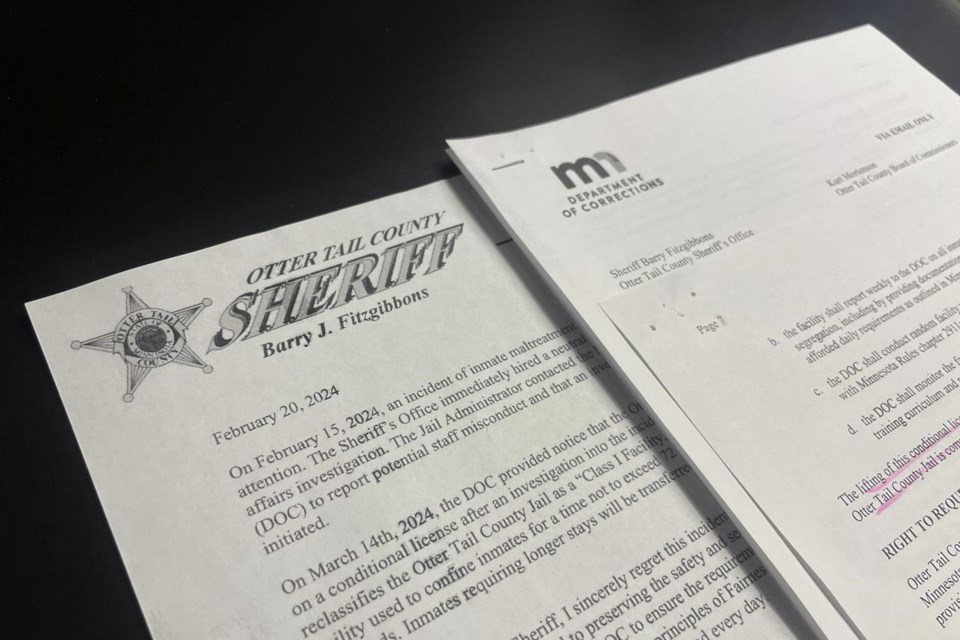ST. PAUL, Minn. (AP) — The Minnesota Department of Corrections has penalized a county jail for depriving an inmate of food and water for more than two days as punishment after he smeared feces in his cell and refused to clean it up.
The department ordered the Otter Tail County Jail in Fergus Falls to transfer all current inmates to new facilities by the close of business Thursday. The jail will be allowed to keep new inmates no more than 72 hours, excluding holidays and weekends, until the state agency approves.
According to the department inspector general's order, on Saturday, Feb. 10 the inmate threw feces on the inside of his cell door and smeared it on his cell window, and underneath his cell door into the jail's dayroom area. Jail staff told him they weren't going to feed him until he cleaned it up, but he refused.
Not only did jail employees withhold six straight meals from the inmate, the report said, he told an inspector that he was forced to drink toilet water and his own urine because the water to his cell was shut off. Jail staff saw him “ingesting his own feces” on the second day, a Sunday, according to the report. Staff documented that they saw him licking the feces off his cell window, and that he said it was because he was hungry.
But staff did not contact medical staff about his potential physical and mental health conditions until the following Tuesday. He also was denied a daily shower.
The order noted that state regulations strictly prohibit withholding food from detainees as punishment. It said the jail's failure to comply “has contributed to conditions that have the potential to pose an imminent risk of life-threatening harm or serious physical injury to individuals confined or incarcerated in the facility if left uncorrected.”
Otter Tail County Sheriff Barry Fitzgibbons said in a statement Wednesday that his staff will follow the state's orders.
“I sincerely regret this incident occurred,” Fitzgibbons said in a statement. “Otter Tail County Sheriff's office is dedicated to preserving the safety and security of our staff and our inmates. We will work closely with the DOC to ensure the requirements outlined in their order are being implemented.”
The incident came to light Feb. 20 when the jail administrator contacted the Department of Corrections to self-report the staff actions and told the agency she had launched an internal investigation with the help of local law firm. The department decided it would also conduct its own review.
The inmate, whose name was not released, was transferred to a jail in a neighboring county. The reason he was being held was not detailed in the order, except “he had disciplinary time left to serve from a previous term of incarceration.”
The sheriff’s statement did not dispute the state’s findings. His office did not immediately respond to follow-up messages on whether any staff had been disciplined, why the inmate was being held and whether he had mental health issues.
Corrections officials ordered refresher and remedial training for jail staff, including on proper supervision of inmates, inmate rights and recognizing the signs of mental illness.
Restoration of the jail's license to resume normal operations will depend on the completion of all corrective actions ordered and assurance that a plan has been created to prevent such an incident from happening again, the order said.
Steve Karnowski, The Associated Press



